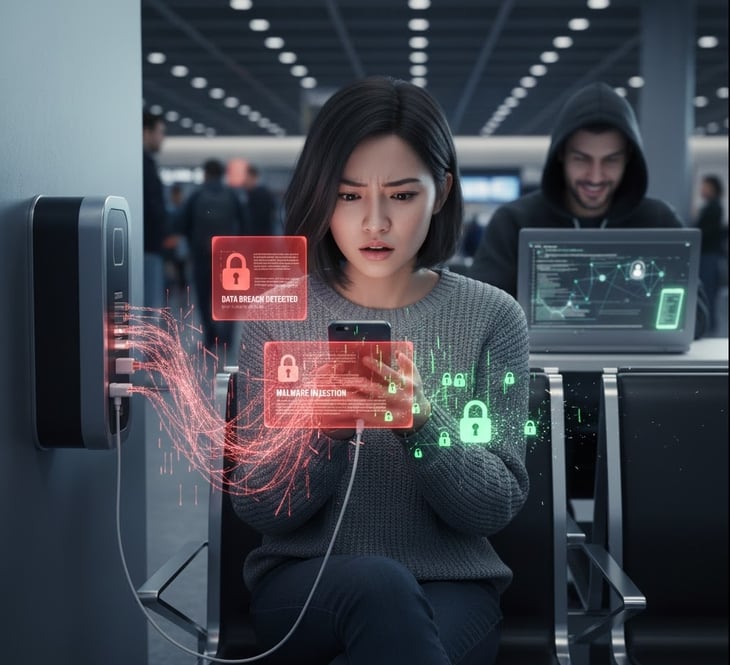
Juice Jacking attacks are performed silently, without user permission.
The United Arab Emirates (UAE) Cyber Security Council has issued an urgent warning about the risk of personal data leakage that users may face when using unsecured public charging ports.
According to the council, up to 79% of tourists using public charging ports are at risk of data theft. The reason is that some of these charging ports may have malware or hidden systems installed to carry out "Juice Jacking" attacks.
This risk also threatens businesses, as many cyber attacks originate from employees charging devices at unsecure USB stations.
How Juice Jacking Sophisticates Data Abuse
Juice Jacking is an attack technique that exploits the ability of USB cables to transmit both power and data. When a device is plugged into a compromised charging port, the attacker triggers the device’s automatic data transfer protocol. The charging port is instantly turned into a malicious communication channel.
Data Exfiltration: Access and steal sensitive information such as passwords, financial information, personal photos, and other credentials stored on the phone.
Malware Injection: Injecting malicious code such as viruses, trojans, or spyware into a device system. This malicious code can lie dormant, monitor user activities, or remotely take control of the device.
Warning signs and prevention
The UAE Cyber Security Council also listed warning signs that a device has been infected with malware after being charged in a public place: unusually fast battery drain, slowed app performance, device freezing or restarting repeatedly, and unfamiliar icons or notifications appearing.
To deal with this silent threat, users need to adhere to basic but crucial security principles:
A separate charging source is strongly preferred; always use a personal charger and power outlet (AC power). The wall power source must not have a data transmission protocol;
Always carry a spare charger;
If you must use a public USB port, use USB Condoms (charging cables that only transmit power and block data transmission) to block the data transmission pins, allowing only power to flow;
If prompted, always decline the "Trust Device" or "Share Data" request and stick to "Charge Only" mode.
Source: https://tuoitre.vn/sac-dien-thoai-noi-cong-cong-coi-chung-mat-du-lieu-trong-nhay-mat-20251124100415807.htm





![[Photo] Next to the "mountain of trash" after the flood, Tuy Hoa residents strive to rebuild their lives](/_next/image?url=https%3A%2F%2Fvphoto.vietnam.vn%2Fthumb%2F1200x675%2Fvietnam%2Fresource%2FIMAGE%2F2025%2F11%2F24%2F1763951389752_image-1-jpg.webp&w=3840&q=75)






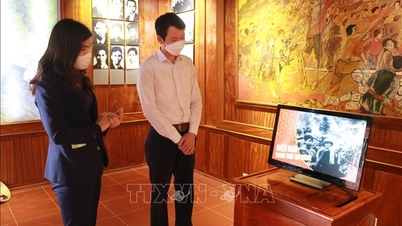
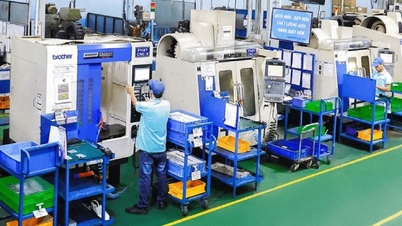


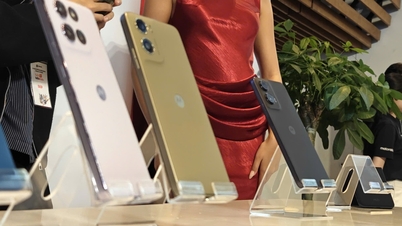






























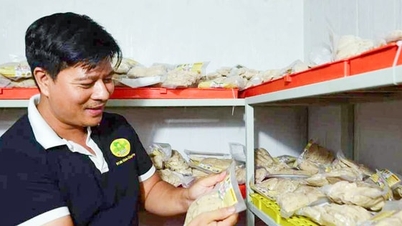























![[Photo] General Secretary To Lam attends the National Conference to review the Party's inspection, supervision and discipline enforcement work in 2025 and the 13th Congress term](https://vphoto.vietnam.vn/thumb/402x226/vietnam/resource/IMAGE/2025/11/24/1763967570884_anh-man-hinh-2025-11-24-luc-13-59-19.png)













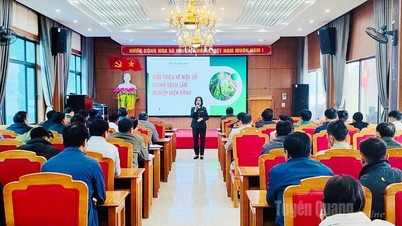

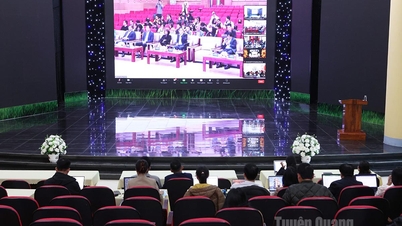



















Comment (0)